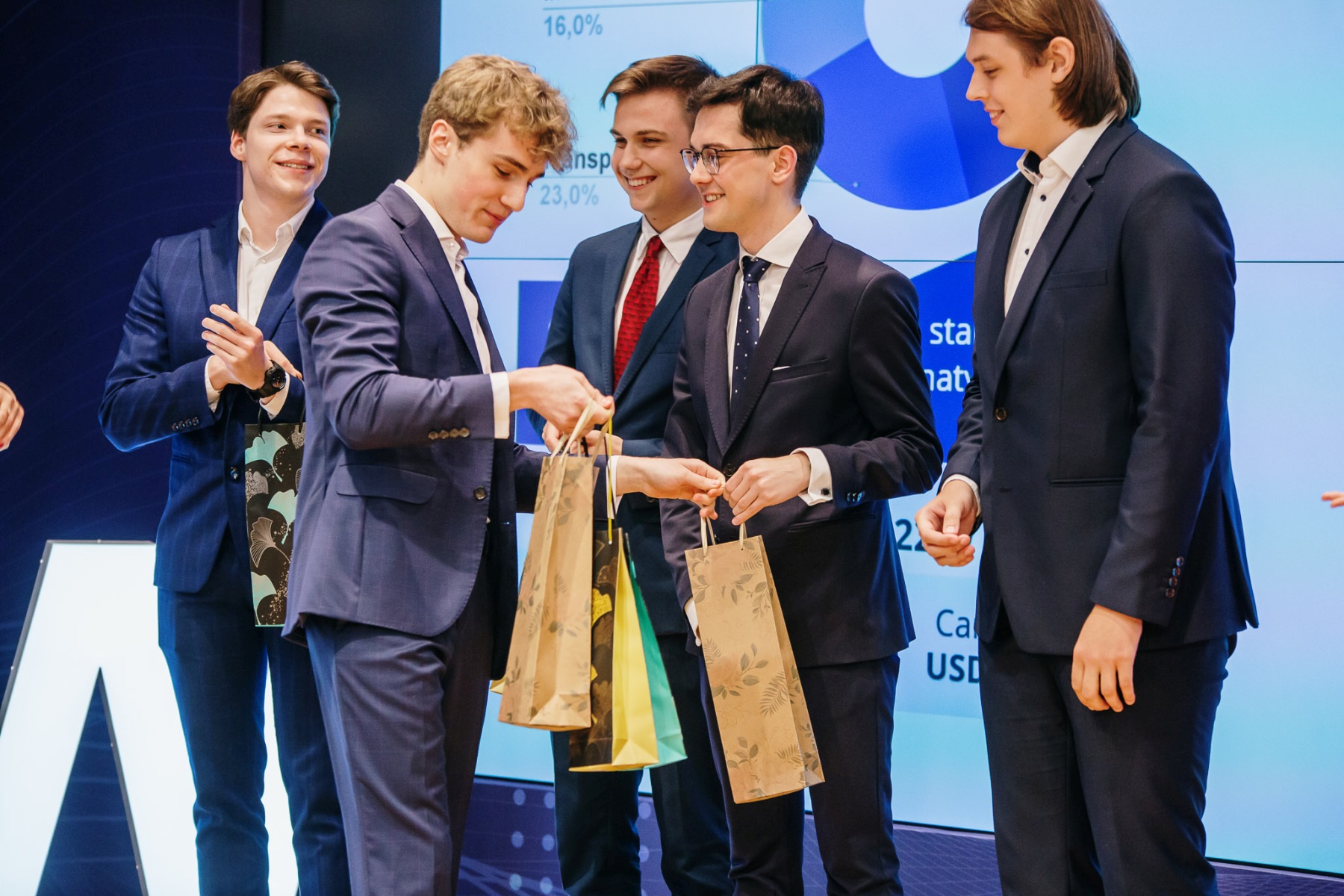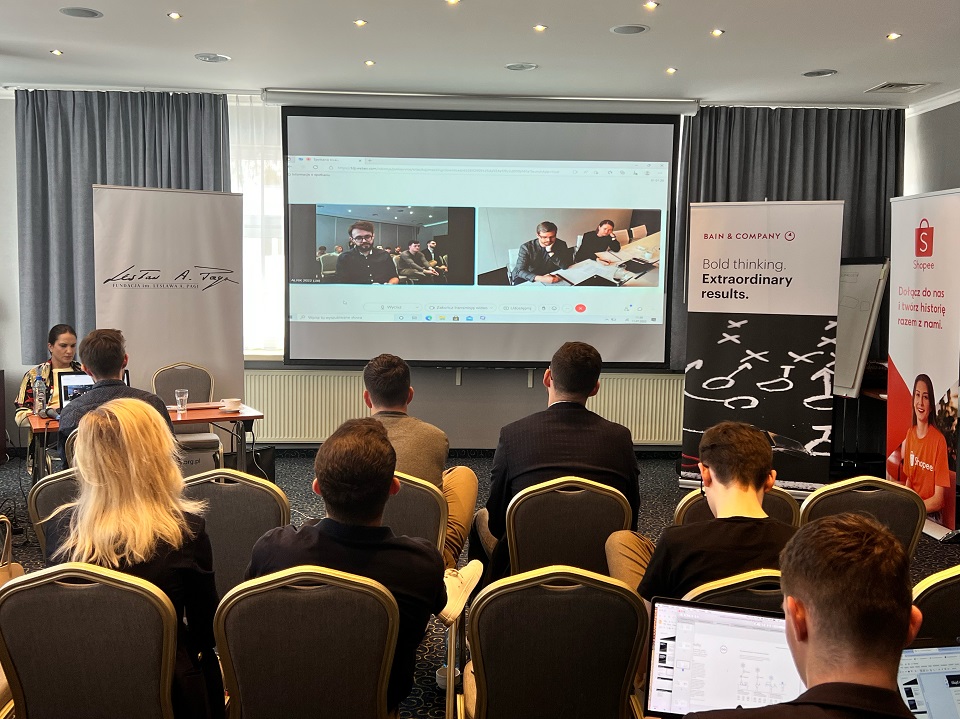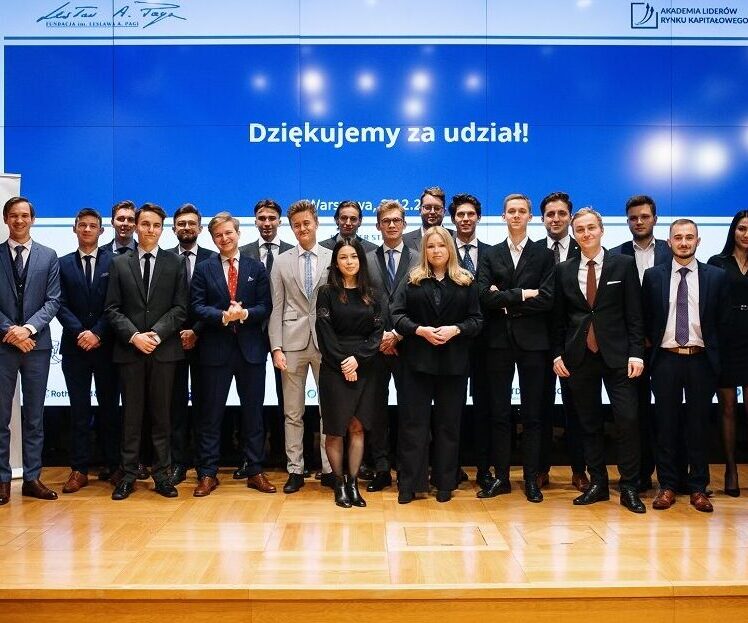„
The most valuable experience from participating in the program is above all the people I met along the way. With many of the people I met during LOZ, we still maintain relationships, creating joint projects.

Mateusz Jankowski,
alumnus of the third edition of the Healthcare Leaders program, physician, habilitated doctor of medical sciences, professor at the Medical Center for Postgraduate Education in Warsaw. From 2019-2022, Visiting Scientist at Harvard T.H. Chan School of Public Health. Chairman of the anti-tobacco section of the Polish Society of Lung Diseases. Author of over 70 scientific publications in the field of public health and epidemiology, including those concerning the use of tobacco products, protective vaccinations, and cancer. Advocate of lifestyle medicine.
Marta Płowiec, Paga Foundation (MP): Could you please tell us how your paths crossed with our Foundation’s Healthcare Leaders (LOZ) program? What did participating in the program give you?
Mateusz Jankowski (MJ): I participated in the Healthcare Leaders program during my fourth year of medical studies. I first heard about the program from friends with whom I was active in one of the student organizations. Looking through the accounts of previous editions of LOZ, what particularly caught my attention was the wide range of presenters who conducted workshops during the training days. The opportunity to meet experts representing different areas of the health sector, including hospital management, the pharmaceutical industry, the medical device market, or health management, significantly contributed to broadening my horizons and viewing the health sector from a bird’s-eye view.
Importantly, the Foundation provides opportunities for action not only during the project but also after its completion. I remember, a few months after the end of the third edition of LOZ, thanks to the Foundation, I had the opportunity to publish my first expert comments and analyses in national industry journals. Together with Alumni from other editions of LOZ, at the invitation of the Ministry of Health, we also made an expert report on the model for forecasting the demand for medical staff in Poland. It was in the Foundation that I took my first steps in working for changes in the health care system.
The most valuable experience from participating in the program is above all the people I met along the way. With many people met during LOZ, we still maintain relationships, creating joint projects.
MP: You became one of the youngest habilitated doctors in Poland. That must have required a lot of dedication and hard work. When you look back at that time, what was your greatest strength? Where were you afraid you wouldn’t cope? And an important question for many of our LOZ Alumni – do you recommend a scientific career?
MJ: The career path I chose is slightly different from the typical work of a doctor. Already in the last year of my studies, I knew that typical hospital work was not for me. On a daily basis, I deal with public health – a field of medicine where the patient is not individual people but the entire population. This gives me the opportunity to act on a large scale. The effects of public health actions are visible only after many years, but they reach hundreds of thousands of recipients.
In my scientific work, I research the health behaviors of Poles. Lifestyle is one of the most important factors determining health. By changing health behaviors – e.g., quitting smoking, promoting protective vaccinations, educating about healthy eating, we can lead to a significant improvement in the health of Poles, which is important from the perspective of the individual citizen, but also the entire population, thereby more efficiently managing resources in the health sector.
Scientific activity requires a lot of self-discipline and regularity. Collecting research material often takes many months, and the process from planning a study to obtaining results sometimes takes years. Nevertheless, scientific activity teaches logical and structured thinking. When planning a scientific study, you need to prepare a methodology that will be evaluated and verified by other scientists. It’s also a good lesson in communication. Importantly, science is becoming increasingly internationalized. International conferences, congresses, and training sessions are an opportunity not only for the development of scientific skills but also to meet interesting people.
It is also worth mentioning that the transfer of technology from science to business is increasingly observed. Many scientists become entrepreneurs.
MP: Conducting research and analysis on COVID, being an advisor to the Chief Sanitary Inspector, you must have had the opportunity to observe and analyze social reactions, the biggest shortcomings of the Polish system in terms of social maturity. From your perspective, what was happening with Polish society, what shortcomings did you notice in our awareness? What do you think we need to catch up on?
MJ: The COVID-19 pandemic has affected each of us. For me, it was primarily a lesson in practical action in a situation of significant threat to the health security of the Polish population. Many people only understood what public health is and how individual health choices and behaviors affect local communities during the pandemic. A month before the outbreak, I returned from a research internship at Harvard. Within just a month of returning to Poland, I had the opportunity to apply the skills I acquired in the USA in practice.
The pandemic highlighted many imperfections in our health care system, especially in terms of medical staff or the organization of health care. Limited access to health care and the reduction in the number of medical services provided during the pandemic led to the so-called health debt. In my opinion, for many years we will struggle with the effects of the pandemic, such as health debt. That is why it is so important to strengthen the health competencies of Poles, so that they can act properly in the event of disturbing symptoms and make health choices conducive to maintaining health.
MP: The direction you chose and your career path have a strongly pro-human context. If you were to tell your peers and younger colleagues in the Foundation why it is worth dedicating your time, your life to the good of others? What motivates you?
MJ: In my opinion, scientific activity should lead to improving the quality of life of people. That is why I chose this career path. Scientists, like entrepreneurs, initiate the process of change. In both cases, it starts with an idea. Pro-social activity allows for a better understanding of people’s real needs. It also provides an opportunity to use one’s competencies and skills for a worthy cause.
Currently, there are many different forms of pro-social activity, from which everyone can find something for themselves. For me, educating and motivating young people to act is particularly important. As a young doctor, I was fortunate to meet true mentors on my career path who inspired me to act and created conditions for scientific development. That is why I try to participate in activities aimed at promoting science among young people.
MP: Why, in your opinion, is it worth investing in young people through our programs? How do you subjectively see the value of the Foundation in the market?
MJ: In my opinion, the most valuable capital of the Foundation is people. The range of programs implemented by the Foundation – from the Leaders Academy ALRK, through the Leaders of Health Care to the Energy Academy – means that the community of Alumni of the Foundation consists of experts representing practically all sectors of the economy. The possibility of creating interdisciplinary teams and exchanging views with representatives of different environments and industries (e.g., during events organized by the Foundation, such as the Foundation’s Christmas Eve or Leadership Meeting) is an unquestionable advantage of the Foundation.
Throughout my career path, both in the public and private sectors, I have repeatedly met graduates of programs conducted by the Foundation. “I’m from Paga” is, in my opinion, a symbol of well and conscientiously done work.






